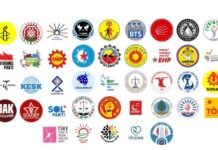Merve Göntem, a screenwriter for the popular Turkish TV series “Kızılcık Şerbeti” (Cranberry Sorbet), was detained in İstanbul on Monday as prosecutors launched an investigation based on comments she made four years ago about a fictional character in another show, Turkish Minute reported.
The investigation, launched by the Anadolu Chief Public Prosecutor’s Office, stemmed from comments Göntem made in a YouTube interview about Eylül, a character in the BluTV drama “Çıplak” (Naked).
In the resurfaced clip, Göntem described the character as someone who “does not feel disturbed by sex work and counts the money happily, with a dream of going to Wales.” Critics circulated the video online, framing it as her own views.
Police detained Göntem at her home in the Cihangir neighborhood under the orders of the prosecutor’s office. She is expected to be referred to court after questioning.
Her lawyer, Giray Kemer, told the T24 news website on Monday that Göntem had become the target of a coordinated online smear campaign after her remarks were “cut, decontextualized and circulated as if they reflected her own views.”
He added that the screenwriter had received death threats directed at herself and her 5-month-old baby and described the late-night detention as “a disgrace for the rule of law and a source of shame for the country.” The lawyer said they had not yet been informed of the formal charges Göntem is facing.
The detention comes after Ebubekir Şahin, chairman of Turkey’s media watchdog, the Radio and Television Supreme Council (RTÜK), announced over the weekend that the regulator was reviewing complaints about “Kızılcık Şerbeti,” a drama series that portrays social polarization in Turkey through the marriage of two young people from conservative and secular families.
He said the series could directly affect the institution of the family and the peace of society, adding that complaints were being carefully examined and that necessary action would be taken without delay.
Gold Film, the show’s producer, responded to the investigation, arguing that it has always taken into account the sensitivity of Turkish society’s values, particularly regarding the family.
The developments come amid mounting concern over restrictions on artistic and political expression in Turkey. According to Freedom House’s “”Freedom in the World 2025” report, Turkey is among the top 10 countries that have suffered the sharpest decline in freedoms over the past decade, with its score dropping by 22 points since 2014.
The report reveals persistent erosion of judicial independence, press freedom, freedom of expression and political pluralism. It has classified Turkey as “Not Free” since 2018, citing what it calls an “autocratic slide” in which courts, media and civil society face mounting pressure.















